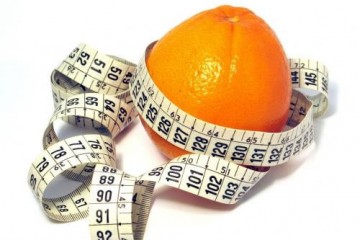These six tips help you control hunger and feel satisfied when you eat. (Lose up to 15 pounds WITHOUT dieting with Eat Clean to Get Lean, our 21-day clean-eating meal plan.)
1. Silence your gut
 Photograph by Ryan J Lane/getty images
Photograph by Ryan J Lane/getty images
While fatigue or stress can trick your belly into believing it craves unhealthy junk foods, there are a few proven ways to help chill out its "feed me!" pleas. It may sound counterintuitive, but expending a little energy can help. A yoga practice, gym workout, or even a 10-minute stroll can help quell those fictitious hunger pangs. Keeping food out of sight can help, too. Seeing food makes you crave food, shows research from Cornell University. (Here are 5 ways to kill your food cravings.)
2. Plan your meals
While "grazing"—or eating lots of small meals—had its day in the sun, the bulk of the research suggests sticking to three meals a day is a better plan for weight loss and hunger management. First of all, the fewer chances you give yourself to over-eat, the better. Also, when you only have three meals to manage each day, it's a lot easier to plan ahead—and that's exactly what you should do. (Follow these easy meal-prep tips to keep on track.) Again, you can't trust your gut when it comes to judging your food needs. By deciding ahead of time what you're going to eat at each meal, you won't be subject to your stomach's unpredictable whims. (Follow this perfect day of clean eating to keep you on track.)
3. Eat breakfast without fail
A recent study published in the British Journal of Nutrition tracked the diets of nearly 900 adults and found that when people ate more fat, protein, and carbohydrates in the morning, they stayed satisfied and ate less over the course of the day, compared with those who ate their bigger meals later on. Unfortunately, many Americans start off on an empty stomach: In one recent survey, consumers reported that even when they eat in the morning, the meal is a full breakfast only about one-third of the time. While it might seem tough at first, eating your biggest meal of the day in the morning—and cutting back at dinner time—can recalibrate your body's hunger cycles in ways that will lower your disease risk and help control your weight, shows research from the University of Southern California. (Try one of these make-ahead breakfasts you can eat all week.)
4. Eat more healthy fat
 Photograph by Chris Gramly/getty images
Photograph by Chris Gramly/getty images
There's a reason you keep hearing this advice. Not only is dietary fat extremely filling, but it also tends to turn off your body's fat-storage processes. Healthy sources include pistachios and other nuts, olive oil, avocado, and Greek yogurt.
5. Munch fiber all day long
Because the body processes a fiber-rich meal slowly, it will stay in your gut longer and keep you feeling satisfied long after you've finished eating. One review recently published in the Journal of the American Dietetic Association linked a high intake of fiber with lower body masses—as well as a reduced risk of type 2 diabetes and heart disease. Leafy greens, fruit, and whole grains are all good sources of fiber. (Here are 10 of the best cholesterol lowering foods.)
6. Include healthy protein at each meal
When researchers at Purdue University asked 46 dieting women to eat either 30% or 18% of their calories from protein, the high-protein eaters felt more satisfied and less hungry. (Check out what a perfect day of eating protein looks like.) Plus, over the course of 12 weeks, the women preserved more lean body mass, which includes calorie-burning muscle. Eggs, fish, legumes, nuts, seeds, and Greek yogurt are all healthy protein sources.




